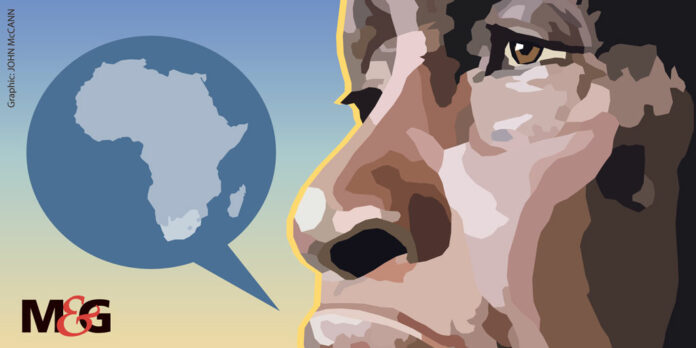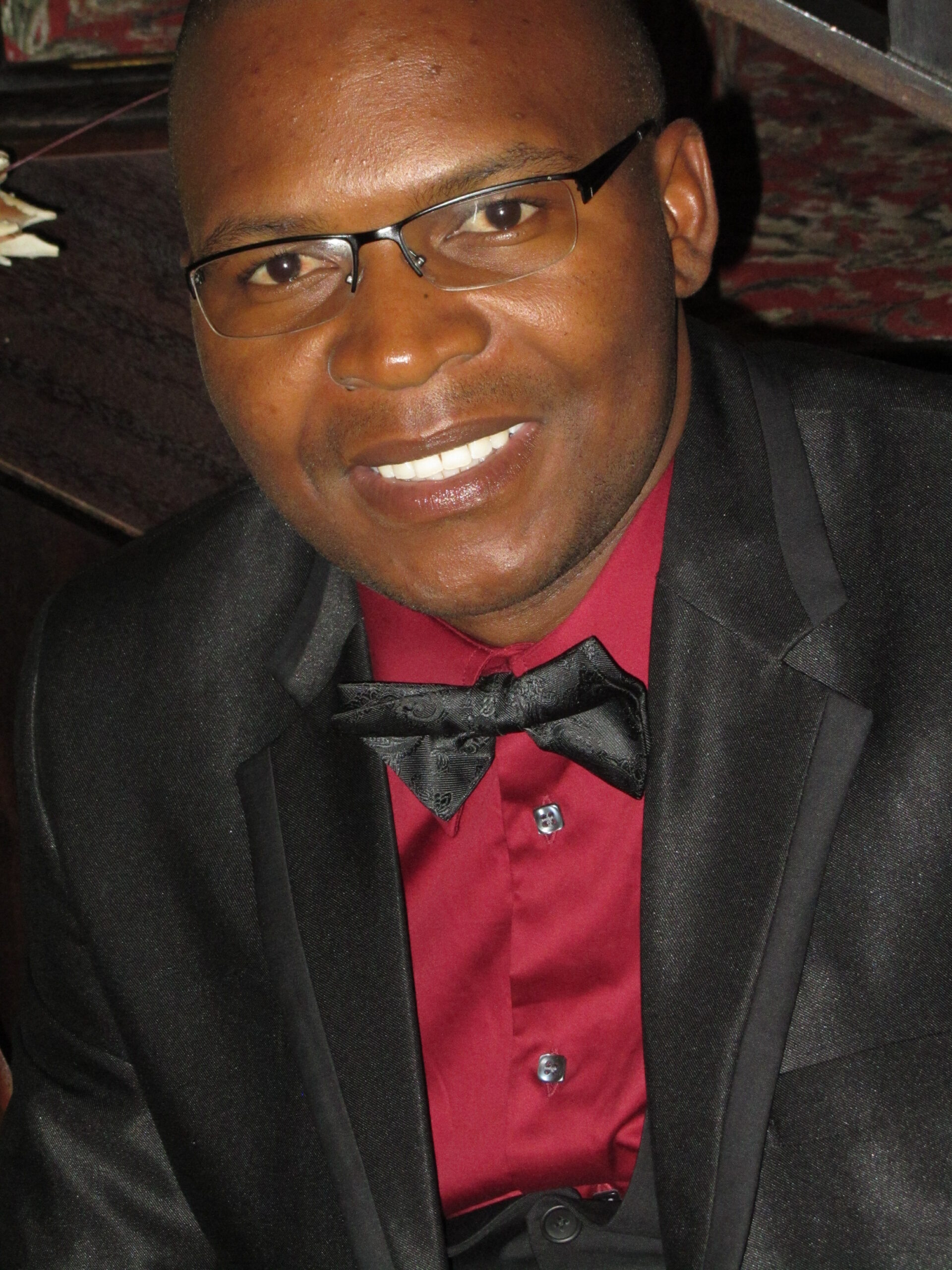Neglecting cultural heritage in Africa is an offspring of psychological defeat emanating from imperialism. It’s aggravated by meek transformation and lack of coordination between the heritage, creative and tourism sectors, especially in relation to language of our artistic expression.
The psychological defeat of a former colony can arrest its creative and innovative backbone, such that it doesn’t sculpt inclusive post-liberation landscapes. Its democratic dispensation is instead likely to claim the easy victory of renaming that which was constructed by the former oppressor, and call it new. This is seeking to put a roof on ruins whose walls cannot hold, ruins that require a complete overhaul.
This is especially true for institutions designed to impose the erosion of the values, practices and meaning of this same nation.
The recent racist hair product advert reminds one that black identity faces ridicule. In the month of September, Heritage Day is reduced to a sheer “braai day”. Of course, the justification is that braai is part of our heritage – which is the heart of the problem.
Why do some celebrate only a portion when the rest celebrate the collective national heritage?
Regrettably, even those who claim to advocate for our heritage habitually caricature the month. It becomes reduced to stereotypical garbs and feel-good talks of stillborn consciousness. Without fail, national pursuits hardly move beyond ceremoniality.
We, at most, fondle the nerve of the colonial and apartheid legacies that are stamped on our artistic, cultural and creative sector, without material redress to legacies of cultural imperialism, particularly with regard to the language question.
In Decolonising the Mind, Ngugi wa Thiong’o illustrated that African languages are nothing that Western or European languages are not. But the repression of languages was a cornerstone of colonialism deliberately employed to spread psychological paralysis among former European colonies.
The imperial floodgate, opened by the 1884 Berlin scramble for Africa, inundated African communities with exotic linguistic, cultural and spiritual identities under the disguise of missionary interventions. Although missionary groups exploited local languages to infiltrate local leadership structures as well as to introduce the exotic religion, they subsequently portrayed African indigenous languages and the rich culture of orality as inferior and primitive. Where locals rejected imposed ways, the men of the cloth unmask the persuasive façade for brutal and bloody encounter, as it was the case with the Thabantsho massacre between the Berlin missionaries and the Bapedi kingdom.
Kirsten Rüther states that the missionaries from Berlin moved from “seeing chiefs as potential allies to viewing them as major obstacles”. So was African culture, languages and spirituality. Cultural imperialism imposed on 90 percent of the African continent left the greater part of the population alienated from their identities and ways of living, and most vividly, from their heritage languages.
Decades upon decades into post-liberation, European languages do not only enjoy the supremacy of lingua franca at the expense of the African indigenous languages, they are an ugly tattoo on the face of the continent, monumental demarcations as if to remind her of her psychological defeat.
Cultural imperialism reduced Africans into five homogenous phones: anglophone, francophone, lusophone, arabophone and hispanophone. Why are the post-liberal African leaders, with their law-making powers, continuing to embrace the very same linguistic tool employed to break the backbone of Africa?
The systemic favouring of European languages is too deep and holistic to be mistaken for personal preference. Preference becomes automatic due to a privileged positioning of English, French, Portuguese, Spanish and Arabic. Even in the post-liberation, these languages are perceived to be intellectual barometers with which to distinguish the smart from the not-so-smart.
A pet chained for a prolonged period, my father told me, is likely to internalise the tether, such that it will continue behaving within imaginary restrictions even when untethered.
Without downplaying the rooted legacies of imperialism under the neoliberal states, the ongoing reactionary narrative of linguistic victimhood under democratic dispensations suggests that human beings are no exception to the self-tethering behaviour of pets.
A defeated mind is self-evident when a lawmaker joins a protest march against something they should use their legislative power to redress.
Nationally, regionally and continentally, lawmakers ought to confront systematic legacies of cultural imperialism, starting with language question. Kwesi Kwaa Prah rightfully contends, no country can make progress based on a borrowed language. Considering its pivotal role in acquiring education, expressing culture, and securing occupation, language is too consequential for any country to treat casually or leave for chance. Tanzania attested that it can, and should, be done. Linguistic transformation does not necessarily have to be anti-European languages, but must be emphatic on equity before equality in order to reposition African indigenous languages.
Under the apartheid regime, cultural imperialism was vividly expressed through linguistic stance of Bantu Education, which imposed Afrikaans as medium of instruction to black learners, some of whom could not even utter a single sentence in the language. This triggered, among others, the bloody Soweto student uprising of 1976, with 176 killed.
Language continues to contribute to inequality. The sum of human wisdom is not contained in any one language, Ezra Pound contended. No single language is capable of expressing all forms and degrees of human comprehension. Every language enriches, and is enriched, by other languages. Affirming this fact, the Constitution of the Republic of South Africa adopted an unmatched multilingual principle that, regrettably, sparkles on paper, but somewhat pales in practice.
Given the constitutional recognition of eleven official languages, the South African context might be mistaken for an exception, particularly since its central claim that no language is superior to the others. But contrary to this theoretic claim of multilingual equality, to grant a single language lingua franca status promotes the hegemony of that language, elevating it above the rest. The Constitution perpetuates that which it claims to fight against: dominance of one language over the other.
Presidents sign only the English version of the Constitution, turning the rest into sheer translations. The eleven official languages reflects the linguistic landscape of the former homelands under the apartheid regime. All these previously imposed identities are, under democratic dispensations, embraced.
Liberation does not always mean true independence. The more things change, the more they stay the same.
The tragedy of the modern-day South African is that most artistic and creative practitioners seem to feel a sense of belonging in exotic institutions such as the British Council, the Goethe Institut, Institut Francais Afrique de Sud, Unesco and USAID because they are disowned and alienated by the department of sport, arts & culture (DSAC) and its entities.
Given links of these institutions with the architects of cultural imperialism, it would be naïve to conclude that African cultural heritages are today free from exotic forces, whether thrust or fondled. One witnesses art practitioners and administrators selling their souls in order to appeal as prospective candidates for, say, the Chevaliers de l’Ordre des Arts et des Lettres or the Goethe Medal, if not grants. Names such as Mandela are carrot-dangled in front of African youth, be it as Mandela-Washington or Mandela-Rhodes initiatives.
We continue to value African cultural heritage through borrowed spectacles. This explains our unabashed trend of airport receptions for artists we did not bid goodbye to, as if they had to earn first recognition elsewhere before we could value them. Call it ceremonial love.
The only two language-based heritage institutions under DSAC are for English and Afrikaans. Although recently renamed Amazwi, the National English Literature Museum or NELM (as it still appears on the DSAC website) in Makhada, is founded by a die-hard English custodian and Oxford graduate, Guy Butler. NELM became a national entity in 1980, meaning it received government grants since then. The motive behind its name change was to “accommodate” local languages, in particular isiXhosa. Perhaps the fact that its website domain is still NELM (almost a year after its name change) reveals how this envisaged transformation is likely to be nothing beyond a window dress.
Die Afrikaanse Taalmuseum & Monument in Paarl founded by a Dutch linguist Arnoldus Pannevis in 1975, became a national entity in 1977. It is not rocket science to tell whose linguistic and literary heritage continues benefiting in post-apartheid South Africa.
What support do black literary museums such as Mazisi Kunene Museum, OK Matsepe Museum or Sol Plaatjie Museum receive? Out of the 27 entities under DSAC, not even a single one is within culturally diverse provinces such as Limpopo, yet the one-street settler town of Grahamstown (Makhada since June 2019), houses two entities. John Graham must be laughing at us from the grave.
Every language is rich, especially when evaluated in its environmental context. All languages do matter, but more emphatically, one’s heritage language matters. Other South African languages still lobby for official status in the hope such recognition will come with developmental resources. The dire state of underdevelopment of official languages such as isiSwati, however, attests to the fact that autonomous status is not an end but rather a means to an end.
Every speaker of a language needs to make a deliberate effort in lighting a candle in whatsoever way to illuminate the dark linguistic room.
It is unbearable to witness a disturbing trend of previously bilingual institutions and organs of state commended for adopting a monolingual stance under this, our multilingual democracy. The language question, Ngugi wa Thiong’o accurately argues, cannot be solved outside the larger arena of economics and politics.
If language was pivotal in colonial and apartheid imperialism, any post-liberation government that takes itself serious cannot afford casual and uncoordinated redress. Though the Constitution makes significant provisions for linguistic rights, all is spoiled by qualifiers such as “where reasonably practical” and “where financially feasible,” which create scapegoats for non-compliance.
Parliamentary deliberations reveal the attitude of our beloved lawmakers towards African indigenous languages, more so, the language of party names. Politicians and academics are part of the problem. Tangible cultural heritage should go beyond erecting statues of political figures since it misleadingly suggests that our nation is a product of a single subculture, politics.
Mugabe and Gaddafi, unapologetic lobbyists for Africa to secure a permanent seat on the United Nations Security Council, are no more, with their call blatantly rejected. Why does Africa continue receiving mandates from elsewhere, through the UN or UNESCO declarations, often prioritised at the expense of domestic agenda?
Cultural diplomacy can resuscitate cultural imperialism. The preservation of endangered languages needs to be a coordinated holistic intervention for which sufficient resources are made available.
It would be unthinkable for Africa to entrust exotic agents with this defining task. Identity, Eduardo Galeano puts, resides in action. He argues that we are what we do, especially what we do to change what we are. Africa and its cultural heritage will never be decolonised until the language question is.




